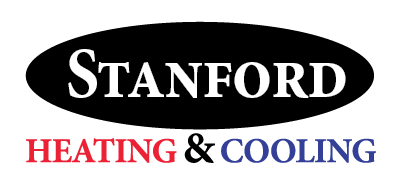
Buying your first home is exciting. You’re likely juggling a dozen things or more to ensure you’re making the right choice. We believe that gaining insight into your future HVAC system is crucial. The property’s HVAC system represents a substantial investment and potential source of long-term costs, illustrating why a detailed inspection is important for first-time homebuyers.
In this guide, we’ll share seven tips for learning everything you can about a home’s heating and cooling setup. And if you want a deeper opinion from the pros, don't hesitate to contact Stanford Heating & Cooling. Our staff can help you compare your options with industry insights that are second to none.
1. What HVAC System Are You Working With?
Start by identifying what type of HVAC system the home includes. Furnaces generally last longer than air conditioners, and newer types of HVAC systems like heat pumps feature average life spans longer than ever. Getting the details on the make and specific model ensures you have a clear idea of how much maintenance it will require.
2. How Long Ago Was the System Installed?
It’s just as smart to learn how old the HVAC system is when you're looking at a potential new home. On average, HVAC systems should survive for around 10-12 years. Learning its approximate installation date helps you anticipate future maintenance needs or considerations if it might eventually stop working. Older systems are at a higher risk of problems, so planning ahead of time for a replacement unit might be needed faster than expected.
3. Is the Warranty Still in Effect?
Be sure to check the HVAC system is still under warranty. If it is, this can assist with maintenance expenses. HVAC warranties typically include parts and labor, but it's important to note that details will vary. Make sure you go over any terms that seem confusing to ensure you understand your coverage and any possible out-of-pocket costs.
4. Does the System Have a Documented Maintenance History?
Next, examine the maintenance history of the HVAC system, if this kind of history is accessible. This kind of information can reveal if the repair needs are high or how often a tune-up was scheduled. Ask about records for key tasks like filter changes, which means it enjoyed more regularly scheduled tune-ups.
5. Are You Aware of the System’s Energy Efficiency Ratings?
Purchasing a home with a heating and cooling system with great energy efficiency isn’t just smart; it leads to smaller utility bills and a smaller environmental impact. Locate the seasonal energy efficiency ratio (SEER) ratings for air conditioning along with the annual fuel utilization efficiency (AFUE) for furnaces. High SEER ratings mean more efficient cooling throughout the season, while higher AFUE ratings indicate that the fuel is efficiently converted into useable heat.
6. Can You Spot Trouble After Your Own Inspection?
Even without heating and cooling expertise, you can still take a moment to check out the HVAC system on your own. Look for signs of problems that weren’t mentioned by the seller or real estate agent. This can mean bizarre noises, unequal airflow and attempts at concealing any obvious damage.
7. Have You Sought Out Expert Advice?
If you're unsure about the condition of the HVAC system, it's beneficial to get a professional opinion from trained HVAC professionals. They will be much more likely to catch things you might not, such as leaking coolant, bad electrical connections or flawed ductwork.
A Consultation with Stanford Heating & Cooling Helps Take the Stress Out of Your Home-Buying Journey
Selecting your first home ought to be exciting, and Stanford Heating & Cooling wants to ensure yours is too. Get in touch with us at 812-825-8695. We can talk about how our HVAC services help make this process smoother, giving you what you need to make an offer with confidence.

